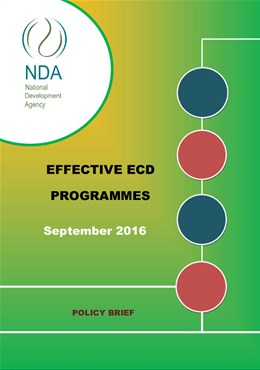Effective Ecd Programmes
The ECD programme is structured within an ECD services to provide learning and support appropriate to the children’s developmental age and stage. Early childhood development is influenced by characteristics of the child, the family, and the broader social environment. Physical health, cognition, language, and social and emotional development underpin school readiness. Publicly funded, centre-based, comprehensive early childhood development programs are a community resource that promotes the well-being of young children (Anderson et al., 2003). The programs such as Head Start are designed to close the gap in readiness to learn between poor children and their more economically advantaged peers. Systematic reviews of the scientific literature demonstrate effectiveness of these programs in preventing developmental delay, as assessed by reductions in retention in grade and placement in special education
Determining information pertaining to ECD centres such as the number of children enrolled or the number of practitioners and assistant practitioners available can play an important role in crafting the nature and scope of policies related to the provision of quality early childhood development services. Factors such as the disability status of children in the centre and the predominant language in which curriculums are taught in a particular province can also have an important bearing on the development of such policy (National Integrated Early Childhood Development Policy., 2015)..<

